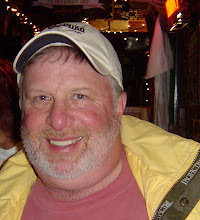When one chooses a specific topic to blog on you can assume it is something they feel strongly about. As you research your topic you are introduced to others that share your interest and it helps you feel that collectively you may be making a difference. This post is about one of those chance introductions.
Philippe Grandjean is a scientist who has dedicated his life to studying the effects of chemicals in our environment on human brain development. Mercury emissions have been tied to abnormal brain development and people like Philippe are quantifying those effects and working to help set scientifically based limits on mercury emissions.
A couple excerpts from a Boston Globe exposé follow;
...Nobody knew then that excess mercury in fish could harm unborn children. "It was a shock," he said, and it changed his career goals. "I later decided to work on environmental health and preventive medicine instead of becoming a clinician."
Today Grandjean, 57, is an adjunct professor of environmental health at Harvard School of Public Health. He has dedicated his life to studying the effects of environmental chemicals on the developing human brain.
(...)
Now Grandjean is studying relationships between low-level exposure to chemicals and a host of children's diseases. Such links are notoriously difficult to prove, but Grandjean is convinced he is seeing one. In a December 2006 article in the journal Lancet, Grandjean proposed that exposure to low levels of various environmental chemicals during pregnancy may be causing a "silent pandemic" of neurodevelopmental disorders in the growing brains of children.
These disorders include autism, attention deficit disorder, mental retardation, and cerebral palsy, but Grandjean believes the bigger issue may be a subtle erosion of IQ. He cites studies showing that kids exposed to low levels of environmental toxins have lower scores on intelligence tests and more behavior problems than their unexposed peers. The research is not yet conclusive, says Grandjean, but he said it doesn't have to be to protect human health.
"We have the tradition of looking at chemicals as if they are innocent until proven otherwise," he says. "In my mind as a physician it does not make sense."
It seems to me there is more autism and ADHD cases now than before, but is it due to the chemicals we have been emitting into the environment over the years, or is it just better understanding of these conditions and better diagnostics? I don't know the answer to that question, but I am glad that people like Philippe are on the case. I strongly suggest you read the full article and get to know this remarkable man a little better yourself.
Subscribe to:
Post Comments (Atom)


No comments:
Post a Comment